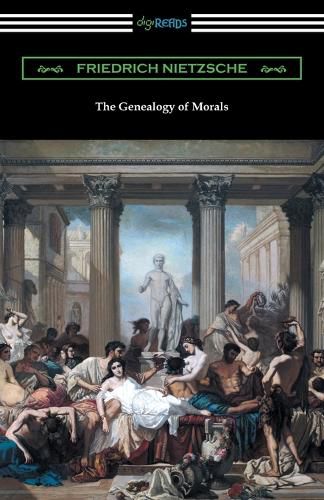Readings Newsletter
Become a Readings Member to make your shopping experience even easier.
Sign in or sign up for free!
You’re not far away from qualifying for FREE standard shipping within Australia
You’ve qualified for FREE standard shipping within Australia
The cart is loading…






This title is printed to order. This book may have been self-published. If so, we cannot guarantee the quality of the content. In the main most books will have gone through the editing process however some may not. We therefore suggest that you be aware of this before ordering this book. If in doubt check either the author or publisher’s details as we are unable to accept any returns unless they are faulty. Please contact us if you have any questions.
German philosopher, Friedrich Nietzsche was one the most controversial figures of the 19th century. His evocative writings on religion, morality, culture, philosophy, and science were often polemic attacks against the established views of his time. First published in 1887, The Genealogy of Morals, is a work which follows and expands upon the principles of his previous works, Thus Spoke Zarathustra and Beyond Good and Evil. In a preface and three interrelated essays, Nietzsche outlines his theories on the origins of our moral prejudices. The Genealogy of Morals, was written partly in response to his friend Paul Ree’s book The Origin of the Moral Sensations, whose genealogical hypothesis of morality he found unsatisfactory. Nietzsche begins by reiterating in his first essay the historical conflict between socio-economic classes that has given rise to the varying definitions of good and evil. In the second essay, Nietzsche discusses the origins of the institution of punishment, asserting that it arises from a straightforward relationship between creditors and debtors. Lastly, in the third essay, the philosopher considers the meaning of ascetic ideals. A classic work of moral philosophy, The Genealogy of Morals is considered by many as one of Nietzsche’s finest. This edition is printed on premium acid-free paper, follows the translation of Horace B. Samuel, and includes an introduction by Willard Huntington Wright.
$9.00 standard shipping within Australia
FREE standard shipping within Australia for orders over $100.00
Express & International shipping calculated at checkout
This title is printed to order. This book may have been self-published. If so, we cannot guarantee the quality of the content. In the main most books will have gone through the editing process however some may not. We therefore suggest that you be aware of this before ordering this book. If in doubt check either the author or publisher’s details as we are unable to accept any returns unless they are faulty. Please contact us if you have any questions.
German philosopher, Friedrich Nietzsche was one the most controversial figures of the 19th century. His evocative writings on religion, morality, culture, philosophy, and science were often polemic attacks against the established views of his time. First published in 1887, The Genealogy of Morals, is a work which follows and expands upon the principles of his previous works, Thus Spoke Zarathustra and Beyond Good and Evil. In a preface and three interrelated essays, Nietzsche outlines his theories on the origins of our moral prejudices. The Genealogy of Morals, was written partly in response to his friend Paul Ree’s book The Origin of the Moral Sensations, whose genealogical hypothesis of morality he found unsatisfactory. Nietzsche begins by reiterating in his first essay the historical conflict between socio-economic classes that has given rise to the varying definitions of good and evil. In the second essay, Nietzsche discusses the origins of the institution of punishment, asserting that it arises from a straightforward relationship between creditors and debtors. Lastly, in the third essay, the philosopher considers the meaning of ascetic ideals. A classic work of moral philosophy, The Genealogy of Morals is considered by many as one of Nietzsche’s finest. This edition is printed on premium acid-free paper, follows the translation of Horace B. Samuel, and includes an introduction by Willard Huntington Wright.